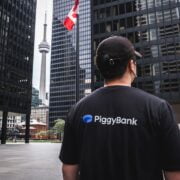
Fueling Your Culinary Dreams: Exploring Small Business Loans for Restaurants
Starting a restaurant can be a dream come true for many aspiring chefs and entrepreneurs. However, turning that dream into a reality requires more than just passion and culinary skills. It also requires financial resources to cover the costs of equipment, inventory, renovations, and other expenses. This is where small business loans come in. Small business loans are crucial for restaurants as they provide the necessary capital to start and grow a successful establishment. In this article, we will explore the different types of small business loans available for restaurants, the importance of these loans, and provide tips for preparing a successful loan application.
Key Takeaways
- Small business loans are crucial for restaurants to fuel their culinary dreams.
- There are different types of small business loans available for restaurants, including SBA loans and equipment financing.
- Preparing a successful small business loan application requires careful planning and attention to detail.
- Understanding the loan approval process is important to ensure a smooth and successful application process.
- Choosing the right lender for your restaurant business is crucial to getting the best loan terms and rates.
The Importance of Small Business Loans for Restaurants
Small business loans play a vital role in the success of restaurants. Starting a restaurant requires a significant amount of capital, and most aspiring restaurant owners do not have the funds readily available to cover these costs. Small business loans provide the necessary financing to purchase equipment, lease or renovate a space, hire staff, and cover other startup expenses.
In addition to startup costs, small business loans also help restaurants navigate through the challenges of day-to-day operations. Restaurants often face fluctuating cash flow due to seasonality or unexpected expenses. Having access to a small business loan can help bridge these gaps and ensure that the restaurant can continue operating smoothly.
Furthermore, small business loans can also be used to fuel growth and expansion. Whether it’s opening a second location, expanding the menu, or investing in marketing efforts, small business loans provide the necessary capital to take a restaurant to the next level.
Different Types of Small Business Loans Available for Restaurants
There are several types of small business loans available for restaurants, each with its own pros and cons. Here are some of the most common types:
1. Traditional Bank Loans: Traditional bank loans are one of the most common options for small businesses, including restaurants. These loans typically have lower interest rates and longer repayment terms. However, they also have stricter eligibility requirements and a longer application process.
2. Small Business Administration (SBA) Loans: SBA loans are backed by the U.S. Small Business Administration and are designed to help small businesses, including restaurants, access affordable financing. These loans offer longer repayment terms and lower down payments compared to traditional bank loans. However, they also have stricter eligibility requirements and a longer application process.
3. Equipment Financing: Equipment financing is a type of loan specifically designed to help businesses purchase equipment. For restaurants, this can include ovens, refrigerators, grills, and other kitchen equipment. The equipment itself serves as collateral for the loan, making it easier to qualify for financing. However, the loan amount is typically limited to the value of the equipment being financed.
4. Business Lines of Credit: A business line of credit is a revolving credit account that allows businesses to borrow funds as needed up to a predetermined limit. This type of loan provides flexibility as funds can be accessed whenever necessary. However, interest rates can be higher compared to other types of loans.
5. Merchant Cash Advances: Merchant cash advances are not technically loans but rather a cash advance based on future credit card sales. This type of financing is typically easier to qualify for but comes with higher interest rates and fees.
Tips for Preparing a Successful Small Business Loan Application
| Tip | Description |
|---|---|
| 1 | Understand the lender’s requirements |
| 2 | Prepare a detailed business plan |
| 3 | Organize your financial statements |
| 4 | Improve your credit score |
| 5 | Provide collateral |
| 6 | Be prepared to answer questions |
| 7 | Consider alternative lenders |
Preparing a successful small business loan application requires careful planning and attention to detail. Here are some tips to increase your chances of approval:
1. Develop a solid business plan: A well-written business plan is essential when applying for a small business loan. It should outline your restaurant concept, target market, marketing strategies, financial projections, and more.
2. Gather necessary documents: Lenders will require various documents to assess your loan application. These may include personal and business tax returns, financial statements, bank statements, lease agreements, licenses, and permits.
3. Improve your credit score: A good credit score is crucial when applying for a small business loan. Take steps to improve your credit score by paying bills on time, reducing debt, and correcting any errors on your credit report.
4. Prepare a detailed loan proposal: Your loan proposal should clearly outline how the funds will be used, how they will benefit your restaurant, and how you plan to repay the loan.
5. Seek professional advice: Consider working with an accountant or financial advisor who specializes in small business loans. They can help you navigate the application process and ensure that you have all the necessary documents and information.
Understanding the Loan Approval Process for Restaurants
The loan approval process for restaurants can vary depending on the lender and the type of loan being applied for. However, there are some common factors that lenders consider when reviewing loan applications:
1. Creditworthiness: Lenders will assess your creditworthiness by reviewing your personal and business credit history. A good credit score demonstrates your ability to manage debt responsibly and increases your chances of approval.
2. Financial Stability: Lenders will review your financial statements, including income statements, balance sheets, and cash flow statements, to assess the financial stability of your restaurant. They will look for consistent revenue, positive cash flow, and a healthy debt-to-income ratio.
3. Collateral: Some loans, such as equipment financing or SBA loans, may require collateral to secure the loan. Collateral can include real estate, equipment, inventory, or other assets that can be seized by the lender if you default on the loan.
4. Business Plan: Lenders will carefully review your business plan to assess the viability of your restaurant concept and your ability to generate revenue and repay the loan.
5. Industry Experience: Lenders may also consider your experience in the restaurant industry when reviewing your loan application. Having relevant experience can increase your chances of approval.
How to Choose the Right Lender for Your Restaurant Business
Choosing the right lender for your restaurant business is crucial to ensure that you get the best terms and conditions for your loan. Here are some factors to consider when selecting a lender:
1. Interest Rates and Fees: Compare interest rates and fees from different lenders to find the most competitive options. Keep in mind that lower interest rates may come with stricter eligibility requirements.
2. Loan Terms: Consider the repayment terms offered by different lenders. Longer repayment terms can result in lower monthly payments but may also mean paying more in interest over time.
3. Eligibility Requirements: Review the eligibility requirements of different lenders to determine if you meet their criteria. Some lenders may have stricter requirements than others.
4. Reputation and Customer Service: Research the reputation of potential lenders and read reviews from other borrowers. Look for lenders that have a good track record and provide excellent customer service.
5. Specialized Lenders: Consider working with lenders that specialize in restaurant financing. They will have a better understanding of the unique needs and challenges of the restaurant industry.
The Pros and Cons of Small Business Loans for Restaurants
While small business loans can provide the necessary capital to start or grow a restaurant, they also come with their own set of pros and cons.
Pros:
– Access to capital: Small business loans provide the necessary funds to cover startup costs, day-to-day operations, and expansion efforts.
– Flexibility: Depending on the type of loan, funds can be used for a variety of purposes, giving restaurant owners the flexibility to invest in different areas of their business.
– Building credit: Successfully repaying a small business loan can help build your credit history, making it easier to access financing in the future.
– Potential for growth: With access to capital, restaurants have the opportunity to grow and expand their operations, increasing revenue and profitability.
Cons:
– Debt burden: Taking on a small business loan means taking on debt. Restaurant owners must carefully manage their finances to ensure they can meet their loan obligations.
– Interest rates and fees: Small business loans often come with higher interest rates and fees compared to personal loans. This can increase the overall cost of borrowing.
– Eligibility requirements: Some types of small business loans have strict eligibility requirements, making it difficult for some restaurant owners to qualify.
– Risk of default: If a restaurant fails to generate enough revenue to repay the loan, it can result in default and potentially lead to the closure of the business.
Real-Life Success Stories of Restaurants That Used Small Business Loans
There are numerous success stories of restaurants that have used small business loans to fuel their growth and success. One such example is a family-owned Italian restaurant that used an SBA loan to expand their operations. With the loan, they were able to lease a larger space, purchase new equipment, and hire additional staff. As a result, their revenue increased significantly, and they were able to attract more customers.
Another success story is a food truck that used equipment financing to purchase a new truck and expand their menu offerings. The loan allowed them to upgrade their equipment and increase their production capacity, resulting in higher sales and profitability.
These success stories highlight the importance of small business loans in helping restaurants achieve their goals and reach new heights of success.
Alternatives to Small Business Loans for Restaurants
While small business loans are a popular option for restaurant financing, there are also alternative funding options available. Here are some alternatives to consider:
1. Crowdfunding: Crowdfunding platforms allow individuals to raise funds for their projects by collecting small contributions from a large number of people. This can be an effective way for restaurants to raise capital while also generating buzz and attracting potential customers.
2. Grants: There are various grants available specifically for small businesses, including restaurants. These grants do not need to be repaid and can provide a significant amount of funding. However, they often have strict eligibility requirements and a competitive application process.
3. Personal Savings or Investments: Some restaurant owners choose to fund their business using personal savings or investments from friends and family. While this option does not involve taking on debt, it does require personal financial resources and can be risky.
4. Angel Investors or Venture Capitalists: Angel investors and venture capitalists are individuals or firms that provide funding to startups in exchange for equity or a share of the business. This option can provide significant funding and expertise but also involves giving up some control of the business.
Taking the Next Steps to Fuel Your Culinary Dreams
Small business loans are crucial for restaurants as they provide the necessary capital to start, operate, and grow a successful establishment. Whether it’s a traditional bank loan, an SBA loan, equipment financing, or other types of loans, restaurant owners have various options to choose from. By carefully preparing a loan application, understanding the loan approval process, and choosing the right lender, aspiring restaurant owners can increase their chances of securing the financing they need.
However, small business loans are not the only option available. Crowdfunding, grants, personal savings, and investments from angel investors or venture capitalists are alternative funding options that may be worth exploring.
Regardless of the funding option chosen, it’s important for aspiring restaurant owners to take the next steps in pursuing their culinary dreams. With careful planning, hard work, and access to capital, they can turn their passion for food into a successful and thriving restaurant business.
FAQs
What are small business loans for restaurants?
Small business loans for restaurants are financial products designed to help restaurant owners obtain the necessary funds to start, expand, or maintain their businesses. These loans can be used for various purposes, such as purchasing equipment, hiring staff, renovating the restaurant, or covering operating expenses.
Who can apply for small business loans for restaurants?
Any restaurant owner who meets the lender’s eligibility criteria can apply for small business loans for restaurants. Typically, lenders require applicants to have a good credit score, a solid business plan, and a proven track record of revenue and profitability.
What types of small business loans are available for restaurants?
There are several types of small business loans available for restaurants, including term loans, lines of credit, equipment financing, and merchant cash advances. Each type of loan has its own features, benefits, and drawbacks, so it’s important to choose the one that best suits your needs and financial situation.
How much can I borrow with a small business loan for my restaurant?
The amount you can borrow with a small business loan for your restaurant depends on several factors, such as your credit score, your business revenue, and the lender’s policies. Typically, small business loans for restaurants range from $5,000 to $500,000, although some lenders may offer higher amounts.
What are the interest rates and fees for small business loans for restaurants?
The interest rates and fees for small business loans for restaurants vary depending on the lender, the loan amount, and the loan term. Generally, interest rates for small business loans range from 5% to 30%, while fees can include origination fees, application fees, and prepayment penalties.
How long does it take to get approved for a small business loan for my restaurant?
The time it takes to get approved for a small business loan for your restaurant depends on several factors, such as the lender’s policies, the completeness of your application, and the complexity of your business. Typically, the approval process can take anywhere from a few days to several weeks.
What are the repayment terms for small business loans for restaurants?
The repayment terms for small business loans for restaurants vary depending on the lender and the loan type. Generally, repayment terms can range from a few months to several years, and can include fixed or variable interest rates, monthly or weekly payments, and balloon payments at the end of the term.


















